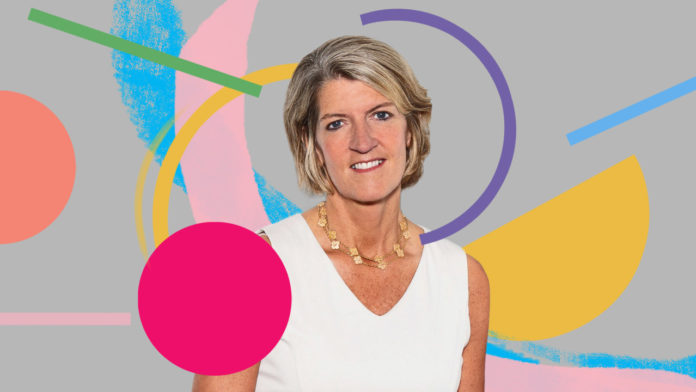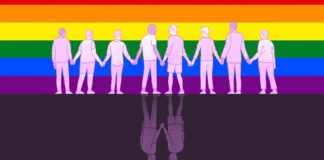
When the pandemic disrupted the food service industry, dairy farmers across the country struggled to sell their wares, with some of them resorting to dumping their milk. At Land O’Lakes, one of the largest agricultural cooperatives in the country, food service products accounted for close to 40% of its $14 billion business. But Land O’Lakes managed to redistribute its farmers’ milk by cutting back on less essential products and redirecting bulk food service products to grocery stores and retailers.
“We are farmer-owned, so we were doing everything we [could] on their behalf,” says Land O’Lakes president and CEO Beth Ford, the first openly gay woman to lead a Fortune 500 company. “We were fortunate the team found outlets for the milk because you don’t have a business if you’re a dairy farmer if you can’t ship it somewhere. That’s a problem.”
By the end of the year, Land O’Lakes was thriving, in spite of the pandemic. After all, the company was perhaps best known for its butter—and baking had become a national pastime. Butter sales were on track to reach about $300 million in 2020, a spike of more than 20% compared to years prior. In the first quarter of 2021, Land O’Lakes reported overall profits of $136 million, more than three times its net earnings year over year. And as restaurants and schools reopened more fully, net sales were up by about 4% across the business.
In the rural communities where Land O’Lakes farmers live and work, however, the pandemic has only exacerbated existing inequities. Since taking over as CEO in 2018, Ford has been a vocal advocate for improving internet connectivity in rural parts of the country—a cause that has become all the more urgent over the last year, as the yawning digital divide has curtailed access to basic necessities like healthcare. According to a recent report by Broadband Now, about 42 million Americans still lack broadband access. “To me, broadband and technology access should be a right, like mail delivery [and] electricity,” Ford says. “It’s fundamental to the way we live and access services and goods.”
Over the last two years, Land O’Lakes has made 3,000 WiFi hotspots public across 49 states through the American Connection Project, a partnership with more than 150 organizations to help improve access to free WiFi and agitate for policy changes and investment at the state and federal level. (President Biden’s infrastructure plan currently includes a $100 billion proposal to invest in broadband access.) But Ford recognizes that top-down financial investment alone isn’t enough. That’s why Land O’Lakes recently launched the American Connection Corps, which is recruiting college graduates to return to their hometowns and build out their digital infrastructure across rural states like Kansas, Ohio, Kentucky, and Alabama.
“The opportunity is for this to be a job-creating mechanism,” Ford says. “What we want to do is make sure that young people who go to college can come back—[that] they have a job, and it is tied to an investment in their community.”
Land O’Lakes also forged a multi-year partnership with Microsoft last summer, through which the companies are creating an agtech platform for farmers that harnesses artificial intelligence to help them maximize profits and embrace more sustainable practices. To ensure farmers can actually use those tools, a crucial component of the partnership is expanding broadband access in those rural communities and rolling out more than 150 free WiFi hotspots.
“This isn’t a rural issue,” Ford says. “This is an American issue. Your food supply comes from these communities. And if we don’t invest, we’re all less secure.”
WATCH: Queer leaders on the impact of the pandemic and the future beyond it








